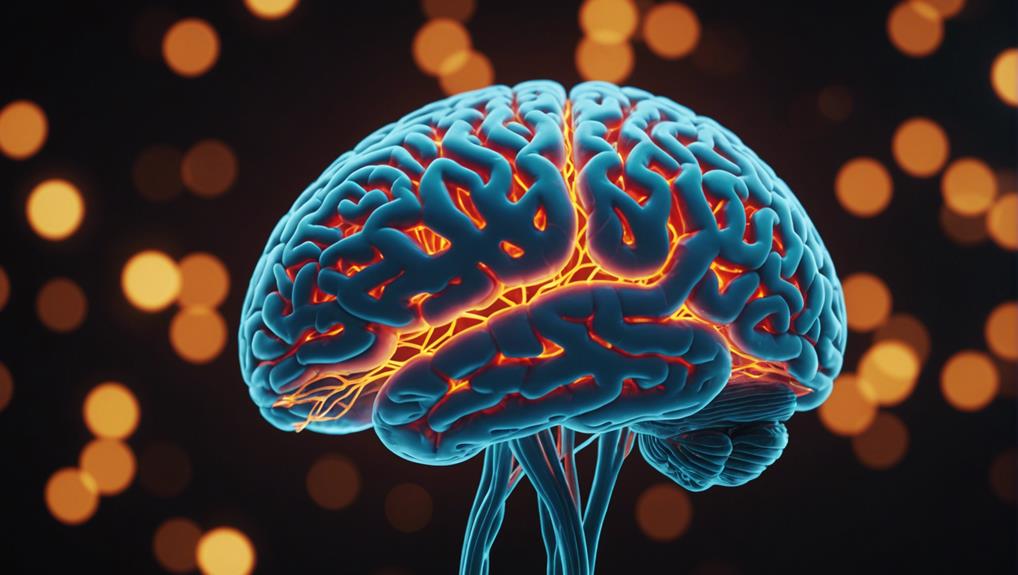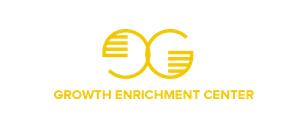
Ever found yourself in a situation where what you saw was exactly what you expected? Our minds are intricate webs of perception, easily swayed by the power of anticipation. But have you ever paused to wonder why this phenomenon occurs? The interplay between our thoughts and reality is a complex dance, often leading us down familiar paths. Stay tuned to uncover the secrets behind this intriguing puzzle and discover how you can navigate the maze of expectations with newfound clarity and insight.
The Power of Expectations
Discover the extraordinary influence of your expectations on how you perceive the world around you. Your mind is a powerful filter, shaping your reality based on what you anticipate.
When you approach a situation with positivity and optimism, you're more likely to notice the beauty and opportunities it holds. Conversely, if you're filled with doubt or negativity, your focus shifts towards the challenges and obstacles in your path.
Imagine waking up each day with a sense of excitement, believing that good things are in store for you. This mindset not only colors your day with brightness but also attracts positive experiences towards you. On the other hand, if you constantly expect the worst, you might inadvertently invite negativity into your life.
Influence of Cognitive Biases
Cognitive biases shape the way you perceive and interpret information, influencing your decisions and behavior without you even realizing it. These biases are like filters that color the world around you, affecting how you evaluate things.
Here are some key points to ponder:
- Confirmation Bias: You tend to seek out information that confirms your preconceptions, ignoring evidence that contradicts your beliefs.
- Anchoring Bias: Your initial impressions or first piece of information can heavily influence your decision-making process.
- Availability Heuristic: The ease with which you can recall examples of something can lead you to overestimate its likelihood or importance.
Role of Perception in Expectation

As you navigate through the intricacies of perception and expectation, remember that your mind has a powerful ability to shape how you interpret the world around you.
It's important to recognize the role perception plays in forming your expectations, often leading to biases that can influence your judgments.
Perception Shaping Expectations
Our perceptions play a significant role in shaping the expectations we hold, guiding our interactions with the world around us. It's fascinating how our perception can influence what we expect to see or experience.
Here are a few ways perception shapes our expectations:
- Selective Attention: We tend to focus on specific aspects of our environment based on our perceptions, which can lead us to anticipate certain outcomes.
- Interpretation Bias: The way we interpret information is heavily influenced by our perception, impacting the expectations we form.
- Cognitive Filters: Our preconceived notions filter the information we receive, molding our expectations before we even consciously acknowledge them.
Understanding how our perceptions shape our expectations can help us navigate the world with a clearer perspective.
Bias in Perception
Perception biases influence how you anticipate and interpret the world around you, shaping your expectations profoundly. Your mind is a powerful filter, often predisposed to notice information that confirms existing beliefs. This tendency can lead to a distorted view of reality, where you might overlook evidence that contradicts your preconceptions.
By understanding these biases, you can actively work to broaden your perspective and challenge your assumptions. Embrace the opportunity to question your initial judgments, allowing room for new insights to emerge. Cultivating a mindset that's open to different possibilities can enrich your experiences and deepen your understanding of the world.
Confirmation Bias in Action
As you navigate through your daily experiences, your mind naturally seeks out information that aligns with what you already believe – this is known as selective perception.
When your existing beliefs are consistently reinforced, it solidifies your convictions, creating a loop of confirmation bias.
Be mindful of this tendency, and challenge yourself to remain open to new perspectives to avoid falling into the trap of reinforcing beliefs without considering alternative viewpoints.
Selective Perception
When you seek out information that confirms your existing beliefs, you tend to overlook evidence that challenges your viewpoints, leading to selective perception in action. This can hinder your ability to see the full picture and make well-rounded decisions.
To combat selective perception, try the following:
- Seek Diverse Perspectives: Actively seek out viewpoints that differ from your own to broaden your understanding.
- Question Your Assumptions: Challenge yourself to question why you believe what you do and consider alternative explanations.
- Stay Open-Minded: Remain open to changing your beliefs in the face of new evidence, allowing for personal growth and learning.
Belief Reinforcement
To truly understand how belief reinforcement operates in our daily lives, it's vital to recognize the subtle ways in which our minds actively seek out confirmation of our existing beliefs. Your brain naturally tends to filter information, favoring that which aligns with what you already think or feel.
This confirmation bias can be comforting, providing a sense of validation and security. However, it's imperative to remain open-minded and challenge yourself to seek out diverse perspectives. By actively confronting your beliefs and being receptive to new ideas, you can grow intellectually and emotionally.
Embrace the opportunity to expand your understanding, even if it means questioning what you hold dear. Remember, true growth often comes from stepping outside your comfort zone.
Expectation Vs. Reality

In our minds, the line between expectation and reality can often blur, shaping our perceptions in ways we may not even realize. It's natural to have preconceived notions that influence how we interpret the world around us.
Here are some insights to help you navigate the interplay between expectation and reality:
- Mindfulness is Key: Stay present and aware of your thoughts and emotions to better distinguish between what you expect and what's actually happening.
- Embrace Flexibility: Be open to the unexpected and allow room for reality to surprise you, leading to new perspectives and experiences.
- Learn from Discrepancies: When faced with disparities between expectation and reality, take the opportunity to reflect, adjust, and grow from the insights gained.
Suggestibility and Interpretation
Exploring the delicate balance between suggestibility and interpretation can greatly influence how you perceive the world around you. Suggestibility refers to the tendency to believe or accept information based on subtle cues or expectations. When you're suggestible, your mind is open to being influenced by external factors, shaping your understanding of reality.
On the other hand, interpretation involves making sense of the information you receive, filtering it through your beliefs, experiences, and biases.
Being aware of your suggestibility and understanding how it interacts with your interpretation can lead to a more nuanced view of the world. It allows you to question your assumptions and consider alternative perspectives. By acknowledging the impact of suggestibility on your perception, you can cultivate a more critical mindset, less prone to being swayed by external influences.
Ultimately, by managing the interplay between suggestibility and interpretation, you empower yourself to see beyond initial impressions and uncover deeper truths about the world and your place within it.
Neurological Basis of Expectation

Understanding the neurological basis of expectation can offer profound insights into how your mind shapes your perceptions and interactions with the world around you. The brain is a complex organ that processes expectations in remarkable ways, influencing how you perceive and interpret incoming information.
- Neurotransmitters: Chemical messengers in your brain, like dopamine and serotonin, play a significant role in shaping expectations and influencing your perception of reality.
- Neural Pathways: Your brain forms connections between neurons based on past experiences and beliefs, creating pathways that guide your expectations and interpretations of future events.
- Prefrontal Cortex: This part of your brain is involved in decision-making and social interactions, contributing to the formation and adjustment of expectations based on context and prior knowledge.
Expanding Our Cognitive Horizons
Prepare to broaden your mental horizons and embrace new perspectives that challenge your existing beliefs and expectations. It's easy to fall into the comfort of familiar ideas, but true growth comes from pushing beyond what you already know. By expanding your cognitive horizons, you open yourself up to a world of possibilities and opportunities for learning and understanding.
Embracing new perspectives can be intimidating, but it's essential for personal development and intellectual growth. It allows you to see the world through a different lens, gaining insights that were previously inaccessible. By challenging your existing beliefs, you not only enrich your own understanding but also contribute to a more diverse and inclusive society.
Remember that expanding your cognitive horizons is a continuous journey, not a destination. Stay curious, ask questions, and seek out experiences that challenge your assumptions. The more you expose yourself to different viewpoints, the more adaptable and open-minded you become. So, go forth with an open heart and mind, ready to embrace the ever-changing landscape of knowledge and ideas.
Frequently Asked Questions
How Do Cultural Differences Affect Our Expectations?
Cultural differences deeply shape your expectations by influencing your beliefs, values, and norms. Embrace diversity, challenge stereotypes, and engage with various perspectives to broaden your understanding, fostering empathy and mutual respect within a global community.
Can Expectations Be Changed Through Therapy?
Therapy can shift your expectations. With dedication, up to 80% of individuals experience positive changes. Embrace the process, believe in your ability to transform. You hold the power to rewrite your story.
Are There Any Genetic Factors Influencing Expectations?
Genetic factors can indeed influence expectations. Your unique genetic makeup can play a role in shaping how you perceive and interpret the world around you. Understanding these influences can lead to greater self-awareness and personal growth.
Do Emotions Play a Role in Shaping Our Expectations?
You know, emotions are powerful sculptors of your expectations. They color your perceptions, creating a lens through which you view the world. So, recognize their influence and aim for emotional balance in shaping your outlook.
Can Meditation Practices Help in Managing Expectations?
Meditation practices can be a powerful tool for managing expectations. By grounding yourself in the present moment, you can cultivate awareness and detachment from preconceived notions, allowing for a more balanced perspective.
Conclusion
Well, isn't it funny how we always seem to see what we expect? Our minds are powerful influencers, guiding us towards confirming evidence and filtering out the rest.
But hey, maybe it's time to shake things up a bit. By approaching life with positivity and openness, we can break free from our preconceived notions and invite new opportunities for growth and learning.
So, why not give it a try? You might just be surprised by what you find.

